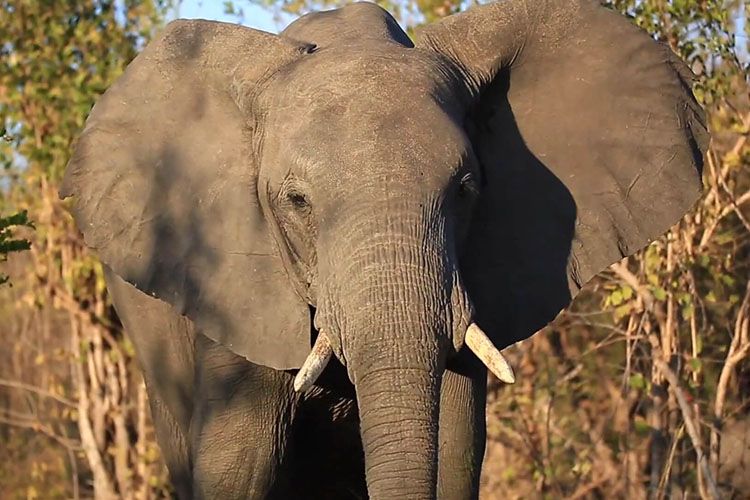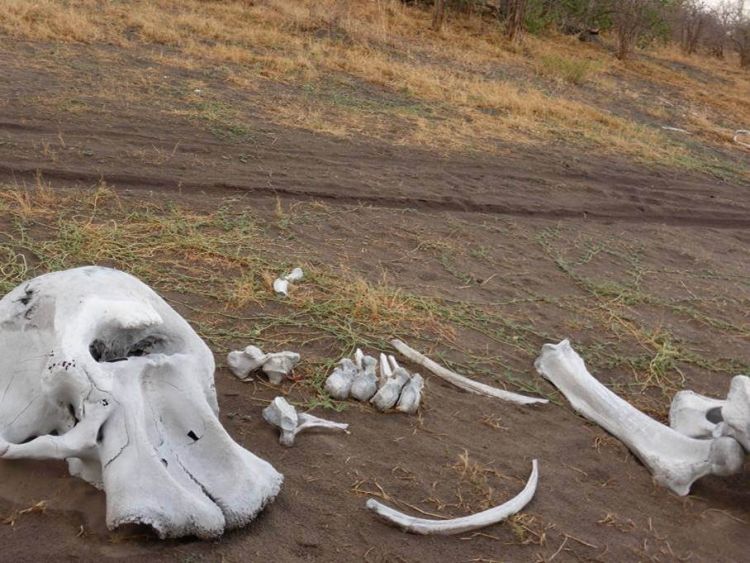YŪGEN’s point of view
It goes without saying that YŪGEN understands the problems the local population faces by the elephants which wander into their territory and it is very true that the protection of people should not be taken lightly. However, we do believe that there are other options than allowing the killings of these vulnerable animals in a country which has become their only safe refuge left in the region, since the neighboring countries never banned trophy hunting. YŪGEN believes that if we want to protect them, we will have to find ways of living together with wild animals, not only in Africa.
Many studies and research have shown that the brains and behaviors of elephants show huge similarities with the one of humans, great apes, dolphins and whales, that they can morn, feel, play, show compassion and empathy, have self-consciousness, be afraid, sad, and even can suffer psychological flashbacks and posttraumatic stress. Like humans, they do not rely so much on their instinct but on a learning process of about 10 years while growing up when their brain develops. Elephants have a huge memory and a way of communicating with each other. They are extremely smart and can even use tools which they find in nature. They spread seeds over many kilometers which plays an important role in regenerating vegetation elsewhere and the preservation of biodiversity.
The oldest female elephant, called the matriarch, leads a whole group of elephants safely through several territories. She relies on the knowledge she has inherited from her elders and on her memories. Often a border between two countries exists of a river or another recognizable natural element. She remembers the slaughter that took place when they roamed across the river into the neighboring country. Because of this, more and more elephants are staying in what until recently was their only safe territory, Botswana. The fact that surrounding countries never introduced a hunting ban, has contributed to the fact that Botswana now has the largest elephant population.
Suddenly allowing the killings to take place instead of being a safe harbor will leave the elephants without any refuge territory. Only killing the elder animals is no option as they play a vital role in transferring knowledge, disciplining juveniles and in the herd sociology. Not only geographical wisdom will be lost but also knowledge about social behavior around other elephants and animals. Not seldom the oldest ones get shot because they carry the biggest tusks with them.
It is obvious to us that hunting these smart, sensitive giants with human characteristics is not the same as hunting for instance rabbits. And this knowledge makes YŪGEN in favor of finding alternative ways of handling the increasing conflicts between men and elephants. We understand that it must be very hard for just one country to be responsible for the conservation of the largest amount of elephants and we do believe that everyone of us can help by finding and introducing alternatives. For example:
- What if the surrounding countries would also introduce a ban on trophies hunting? And what if natural corridors were put in place so the elephants can migrate from one territory to another without roaming across villages? What if neighboring countries would be willing to co-operate?
- What about using the fact that these giants are very scared of the small African honey bee in a win-win way, allowing the farmers to sell honey to lodges and keeping the elephants on a distance? More information about this can be found on http://elephantsandbees.com/. Also chili can help.
- What about involving the local population more in tourism, so that the elephants indirectly provide an income for them and not mainly for the owners of big wilderness area’s or rich foreigners? What if this income could replace the income out of current crops? What about travel agents working more directly with local entrepreneurs and communities, providing them a decent income?
- What about real eco-lodges taking care of water supplies in remote, dry areas?
- What about tour operators, travel agents and travelers making more responsible choices instead of only looking at how to make the biggest profit or pay the lowest price when deciding on holiday destinations?
These are a few thoughts on the top of our head and from our perspective as a travel agent, just to illustrate our point of view that there could still be many alternatives, in different fields and levels. On top of that, we are afraid that shooting elephants may make them scared and traumatized, causing more aggressive attacks on humans in the end.












Comments
Do you have any questions or suggestions? Leave a message in the box below.